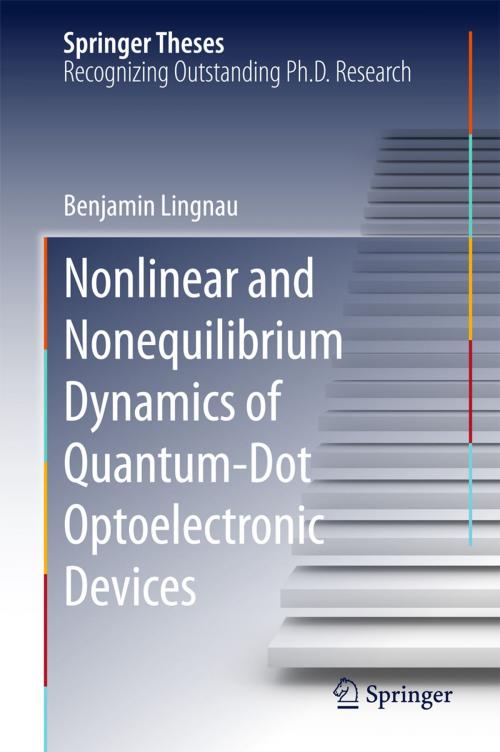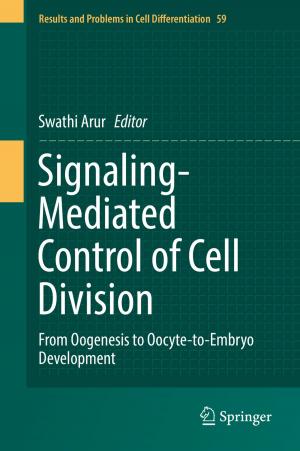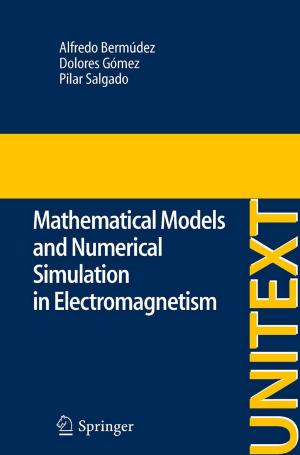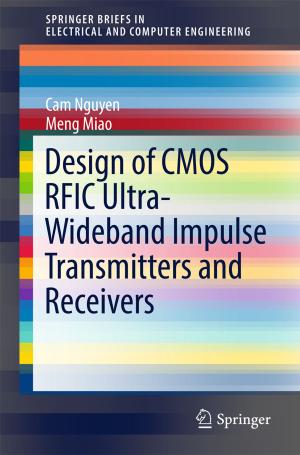Nonlinear and Nonequilibrium Dynamics of Quantum-Dot Optoelectronic Devices
Nonfiction, Science & Nature, Technology, Lasers, Material Science| Author: | Benjamin Lingnau | ISBN: | 9783319258058 |
| Publisher: | Springer International Publishing | Publication: | December 14, 2015 |
| Imprint: | Springer | Language: | English |
| Author: | Benjamin Lingnau |
| ISBN: | 9783319258058 |
| Publisher: | Springer International Publishing |
| Publication: | December 14, 2015 |
| Imprint: | Springer |
| Language: | English |
This thesis sheds light on the unique dynamics of optoelectronic devices based on semiconductor quantum-dots. The complex scattering processes involved in filling the optically active quantum-dot states and the presence of charge-carrier nonequilibrium conditions are identified as sources for the distinct dynamical behavior of quantum-dot based devices. Comprehensive theoretical models, which allow for an accurate description of such devices, are presented and applied to recent experimental observations. The low sensitivity of quantum-dot lasers to optical perturbations is directly attributed to their unique charge-carrier dynamics and amplitude-phase-coupling, which is found not to be accurately described by conventional approaches. The potential of quantum-dot semiconductor optical amplifiers for novel applications such as simultaneous multi-state amplification, ultra-wide wavelength conversion, and coherent pulse shaping is investigated. The scattering mechanisms and the unique electronic structure of semiconductor quantum-dots are found to make such devices prime candidates for the implementation of next-generation optoelectronic applications, which could significantly simplify optical telecommunication networks and open up novel high-speed data transmission schemes.
This thesis sheds light on the unique dynamics of optoelectronic devices based on semiconductor quantum-dots. The complex scattering processes involved in filling the optically active quantum-dot states and the presence of charge-carrier nonequilibrium conditions are identified as sources for the distinct dynamical behavior of quantum-dot based devices. Comprehensive theoretical models, which allow for an accurate description of such devices, are presented and applied to recent experimental observations. The low sensitivity of quantum-dot lasers to optical perturbations is directly attributed to their unique charge-carrier dynamics and amplitude-phase-coupling, which is found not to be accurately described by conventional approaches. The potential of quantum-dot semiconductor optical amplifiers for novel applications such as simultaneous multi-state amplification, ultra-wide wavelength conversion, and coherent pulse shaping is investigated. The scattering mechanisms and the unique electronic structure of semiconductor quantum-dots are found to make such devices prime candidates for the implementation of next-generation optoelectronic applications, which could significantly simplify optical telecommunication networks and open up novel high-speed data transmission schemes.















